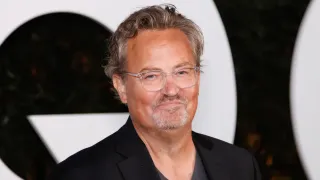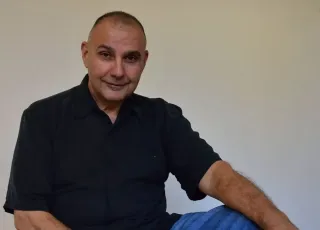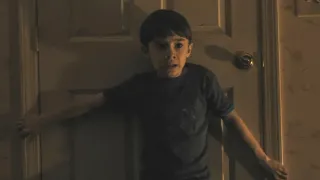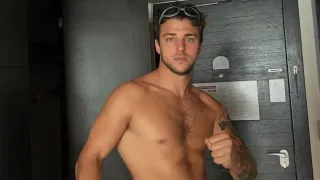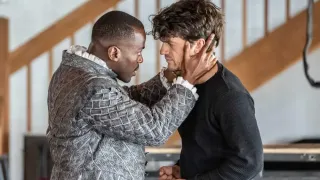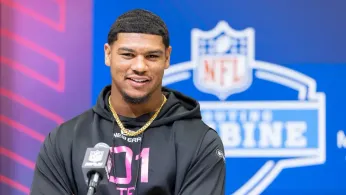
4 hours ago
NFL Rookie Elijah Arroyo Sets Social Ablaze With Tight Shorts
READ TIME: 3 MIN.
Elijah Arroyo, a newly drafted tight end for the Seattle Seahawks, is attracting national attention for reasons beyond his impressive college stats and potential on the field. A recent viral photo of Arroyo sporting snug short shorts has ignited a lively conversation on social media, with many praising the athlete for his confidence and for breaking traditional norms of masculinity within professional football .
Born in Orlando, Florida, and raised in both the United States and Cancún, Mexico, Arroyo’s football journey has been shaped by adaptability and resilience. After excelling at Independence High School in Frisco, Texas, he played for the University of Miami, where he developed a reputation for both athletic prowess and perseverance through injury . Arroyo’s breakout 2024 season at Miami saw him record 35 receptions for 590 yards and seven touchdowns, earning him a Second Team All-ACC nod and a ticket to the 2025 NFL Draft, where he was selected by the Seahawks in the second round .
Images of Arroyo confidently donning tight, high-cut shorts quickly went viral across platforms like Instagram and X (formerly Twitter), with fans and commentators applauding his playful sense of style and willingness to challenge conventional expectations for male athletes . The discussion has resonated strongly within LGBTQ+ communities, who have long advocated for greater freedom of gender expression in sports.
“Seeing a high-profile NFL player so comfortable in his own skin is inspiring,” said one LGBTQ+ sports advocate in comments appearing across social media threads . Many noted that Arroyo’s choice—though light-hearted—signals a potential shift in the hypermasculine culture that has historically defined professional football locker rooms.
Body positivity and inclusive representation remain important issues in sports, particularly for LGBTQ+ fans and athletes who often face rigid expectations around appearance and behavior. While Arroyo has not publicly commented on his own sexual orientation or gender identity, his comfort with self-expression is being celebrated as a positive example for young athletes of all backgrounds .
Sports media and LGBTQ+ outlets have highlighted Arroyo’s viral moment as part of a growing trend: more professional athletes are embracing authenticity and individuality, both on and off the field. This visibility is crucial for fostering a more inclusive environment, encouraging others to express themselves without fear of stigma .
The NFL has made strides in recent years toward supporting diversity and inclusion, with several players publicly coming out as LGBTQ+ and the league hosting events in support of Pride. Yet, the landscape remains complex, and moments like Arroyo’s are reminders of both how far the sport has come and the work that remains to be done .
By confidently embracing his own style, Arroyo joins a new generation of athletes who are reimagining what it means to be a football star. While the buzz around his viral photo may be rooted in humor and admiration, the underlying message—that athletes can be both strong and expressive—is resonating well beyond Seahawks fans.
Reactions from the LGBTQ+ community have been overwhelmingly positive, with many expressing hope that Arroyo’s visibility will inspire other athletes to feel comfortable presenting themselves authentically. “Representation doesn’t require a statement—sometimes it’s just about being seen,” noted a recent editorial in LGBTQ Nation .
As Arroyo prepares for his rookie season, his impact is already being felt off the field. The conversation he’s sparked is a testament to the power of visibility, the ongoing evolution of sports culture, and the importance of celebrating athletes as whole individuals.
With training camp underway, Arroyo’s focus remains on earning his place on the Seahawks’ roster. But for many fans—especially those in LGBTQ+ communities—he’s already a standout. His recent moment in the spotlight is more than a viral trend; it’s a sign of progress and a reminder that sports can be a space for self-expression, inclusion, and joy .
